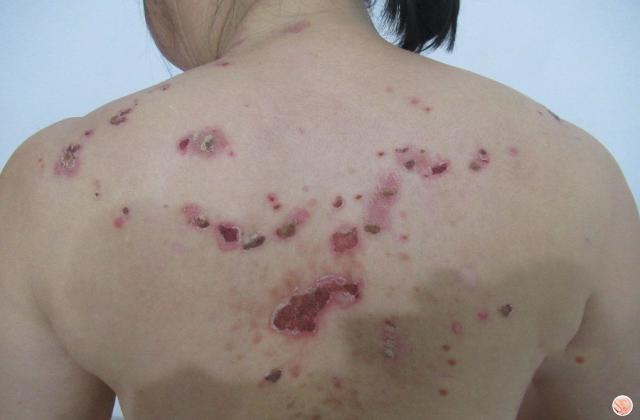内容介绍:银屑病是一种非传染性慢性皮肤病,其发病因素十分复杂,其中基因与环境因素都起到了至关重要的作用。许多研究对银屑病的遗传因素进行了深入的探究,但至今尚未找到一个具体的遗传

银屑病是一种非传染性慢性皮肤病,其发病因素十分复杂,其中基因与环境因素都起到了至关重要的作用。许多研究对银屑病的遗传因素进行了深入的探究,但至今尚未找到一个具体的遗传模式。

目前的研究结果表明,银屑病的遗传倾向与多个基因有关,其中包括MHC类基因、IL23R、IL12B、IL23A等。最初的研究主要关注于MHC类基因,这些基因位于人类染色体6p21.3中,并与机体免疫功能相关。皮肤和关节炎型银屑病患者中,有超过90%的患者礼貌着HLA-C*06:02基因,且其亲属患病率高于普通人群。
除了单个基因的影响外,复杂的基因交互作用也被证实与银屑病发病密切相关。 studies have shown that the risk of psoriasis is higher in individuals with a family history of the disease compared to the general population, indicating a potential genetic component to the disorder. However, the degree of heritability appears to vary depending on the study population and setting. For example, a twin study published in the Journal of Investigative Dermatology found that the heritability of psoriasis was estimated to be around 78%, indicating a strong genetic influence on the disease. By contrast, a large cohort study from Denmark reported a heritability estimate of only 33% for psoriasis, suggesting that environmental factors may play a larger role in some populations.
Overall, while there is strong evidence that genetics plays a role in psoriasis, it is difficult to provide a specific numerical estimate of the heritability of the disease. It is likely that multiple genes – each with a relatively small effect – interact with each other and with various environmental factors to determine an individual's risk for developing psoriasis. As such, it is important to approach the treatment and management of psoriasis on a case-by-case basis, taking into account each patient's unique genetic and environmental risk factors.




